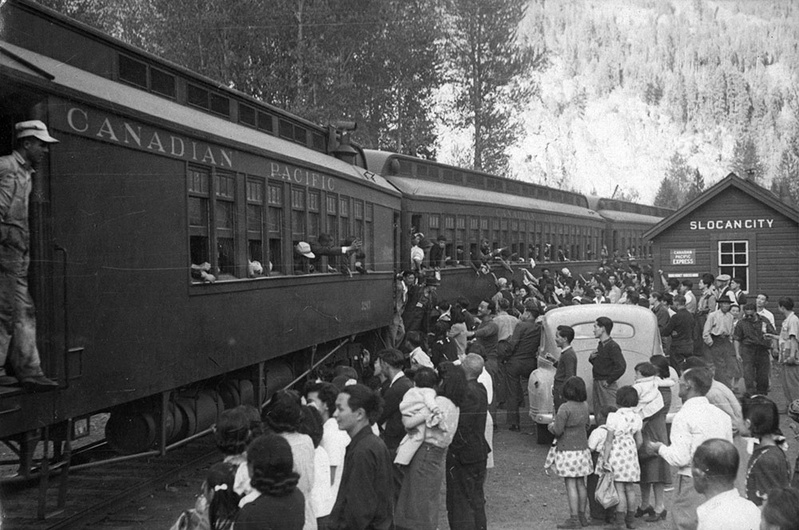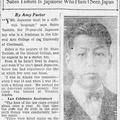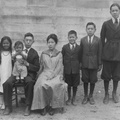The wartime confinement of Japanese Canadians is a landmark in the history of civil rights and race relations nationwide. Like their counterparts south of the border, 22,000 Canadian residents of Japanese ancestry suffered official wartime removal and mass confinement. In addition, their land and personal property were confiscated by Canada’s federal government and subjected to forced sales, which left the community largely destitute.
Once the war was over, the Canadian government instituted mass deportation of all those who had refused to leave the confinement sites and resettle east of British Columbia. It was only after a sustained struggle by Japanese Canadians and their allies that the government finally agreed to halt involuntary deportation of citizens and long-term residents, but the damage was done—thousands of individuals had already been pressured to leave the country. The Pacific Coast of Canada was not reopened to residence by people of Japanese ancestry until mid-1949.
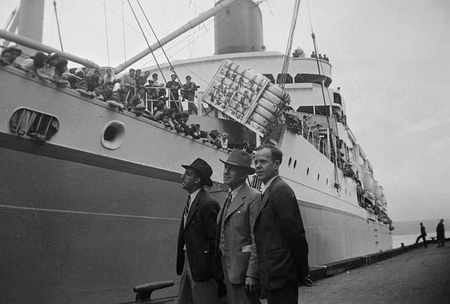
During the 1970s and 1980s Japanese Canadians organized to press for redress from Ottawa. Their campaign climaxed in fall 1988, six weeks after the United States government enacted redress legislation, when Prime Minister Brian Mulroney’s government offered an official apology and a $21,000 CAD payment to each surviving victim of Canada’s wartime policy.
Thanks to the efforts of the Japanese Canadian redress movement, Canadians of all backgrounds have been able to take stock of the damage done by the Canadian government’s wartime actions, not just to its victims but to society at large. One especially creative response to this history and an effort at reconciliation was the Canadian Japanese Mennonite Scholarship, which was created even before the Canadian government instituted official redress.
Mennonites are a Christian group rooted in the so-called Radical Reformation that took place in 16th Century Europe. Inspired by the writings and teachings of a Friesian monk, Menno Simons, Mennonites refused to swear allegiance to “earthly” governments, to inflict violence or to bear arms. This undermined the claims of the state to govern religious affairs–and vice versa. For this reason, they were singled out for persecution by civil authorities in European states.
Meanwhile, due to their practice of adult baptism they were declared heretics by leaders of the official Church, both Catholic and Protestant. In the face of these threats, Mennonites often had to either keep a low profile or leave their home regions. Conversely, throughout its history, the Mennonite Church experienced its own internal waves of reformation, and many Mennonite-related groups formed within the larger movement of Anabaptists (which also includes other groups such as Amish and Hutterites).
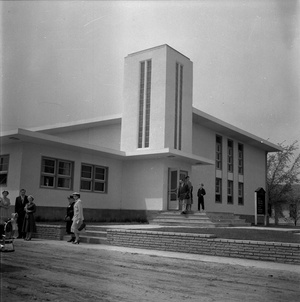
The Mennonite Central Committee, founded in the aftermath of World War I, is a joint ministry that brings together Mennonite groups and communities. It was founded as part of a larger movement that inspired many Mennonite sects to depart from their traditional seclusion from society and band together to respond to the suffering around them. The creation of a joint Mennonite relief committee in 1920 was a direct response from Mennonites and Mennonite Brethren in Canada and the United States to the calls for help from Mennonites in Southern Russia that came in the aftermath of the war and the Russian Revolution.
According to Esther Epp-Thiessen’s 2013 book, Mennonite Central Committee in Canada. A History, it was the Mennonite Central Committee Canada (MCC Canada) that developed the scholarship idea as part of MCC’s larger apology to Japanese Canadians for the group’s complicity in the wartime injustice. In 1984 John H. Redekop, a journalist and political scientist who served on the MCC’s national board, proposed that the MCC apologize to Japanese Canadians. Redekop recounted that in the wake of the mass removal, some twenty-five Mennonite families in British Columbia (many of whom had moved to BC during the years of the Great Depression) were able to gain control of Japanese-owned farms at “fire-sale” prices, and had subsequently prospered.
Redekop stated that the Mennonites had not properly acknowledged the unjust roots of the group’s landfall. In addition to addressing their regret over the official treatment of Japanese Canadians, the idea of an apology was in keeping with the Mennonites’ larger mission of peace and reconciliation, reflecting their own experience as a historically persecuted minority and their sympathy for victims of bigotry. Indeed, over the course of the 1980s, MCC Canada engaged in social action in solidarity with minority groups. MCC service workers worked with Innu from Labrador who pursued land claims against the federal government and protested low-flying military planes passing over their homes.
In early 1985 the MCC board approved a resolution to offer a formal apology to Canadian Japanese on behalf of Canadian Mennonites. In the wake of the resolution being offered, the MCC was criticized by certain of its member churches for making an excessively political statement and for failing to receive authorization for such a collective apology on behalf of Mennonites.
As a tangible symbol of regret, the MCC instituted an annual scholarship for university students, which it sponsored in collaboration with the National Association of Japanese Canadians (NAJC). As the first announcement of the award stated, “The scholarship is intended to assist the protection of minority and human rights in Canada, and to reduce the potential for abuse of cultural minorities such as that suffered by Japanese Canadians during World War II.”
The very first winner of the scholarship, back in 1986, was Winston Kiang, a graduate student in law at University of British Columbia. Kiang was awarded the scholarship for a paper entitled "The Canadian Charter of Rights and Freedoms and Minority Rights: An Overview of Pre-and Post-Charter Eras". He ultimately became an international lawyer based in Hong Kong.
The second winner, Fay Ode, was agraduate student in East Asian Studies at the University of Toronto. She received the award for her thesis, "Tsutae Sato: Sensei For All Seasons" which was an exploration of the career of Sato as a pioneering heritage language teacher on the West Coast of Canada during the prewar years, and an examination of the endemic racism that led to the tragic experience of Japanese Canadians after Pearl Harbor.
The third winner, Sally Ito, was a graduate student in Fine Arts at the University of British Columbia, specializing in creative writing. Ito identified as Japanese Canadian, and she remarked that her objective in creating art was to "write about my particular experiences and circumstances which are Japanese Canadian ones".
As of early 2020, there have been 34 Canadian Japanese Mennonite scholarships awarded. While the majority of awards have funded research by PhD students, the scholarship has gone to scholars in a wide variety of disciplines, including art, education, environmental studies, indigenous governance, and health.
The winning candidates have come from a variety of ethnic backgrounds, including both ethnic Asians and whites, and have been enrolled at institutions scattered widely throughout Canada (although Quebec has been represented by only a single winner, and as yet none have come from the Atlantic provinces).
To date, none of the winners of the Canadian Japanese Mennonite scholarships have presented French-language projects. This absence may be explained in part by the fact that the Mennonite website, with its call for applications, is available only in English. One striking fact is the fact that almost all of the scholarship winners —29 of the total 34 so far—have been women. A few winners, including Mona Gail Oikawa and Kirsten Emiko McAllister, have gone on to devote their careers to studying Japanese Canadians.
The quality of the work done, and the selection of promising scholars, all tend to indicate that the MCC’s bold move in creating the scholarship has borne fruit and left a positive legacy.
© 2020 Greg Robinson & Zacharie Leclair



